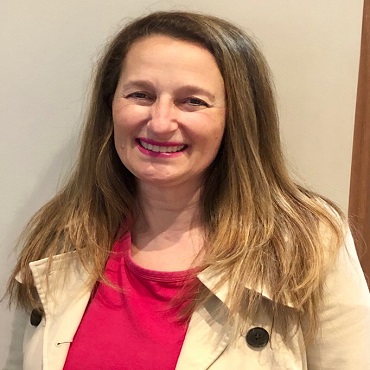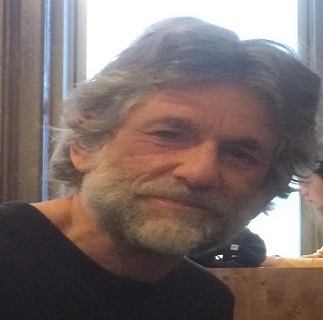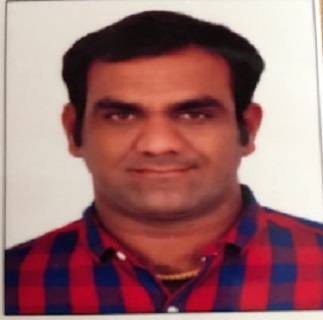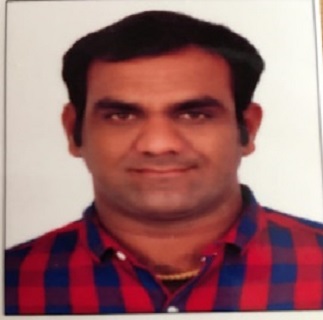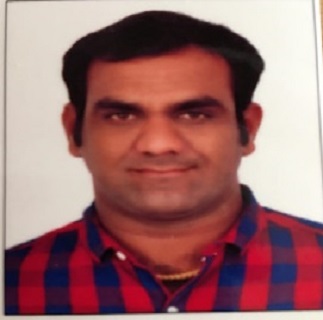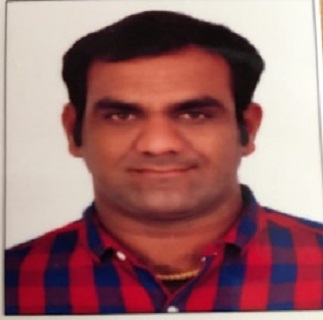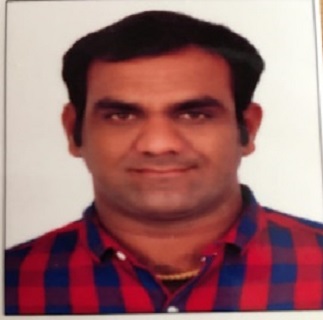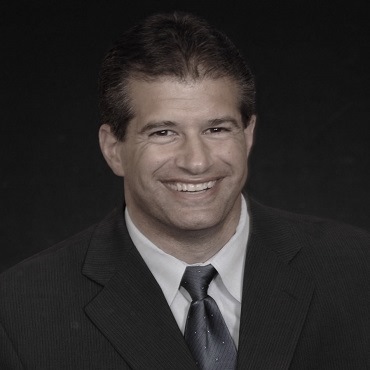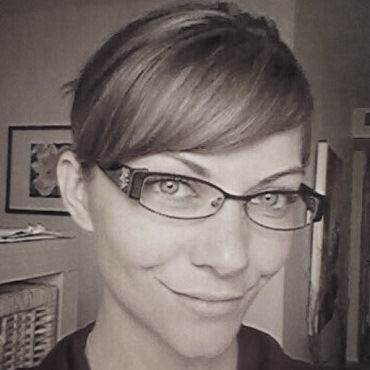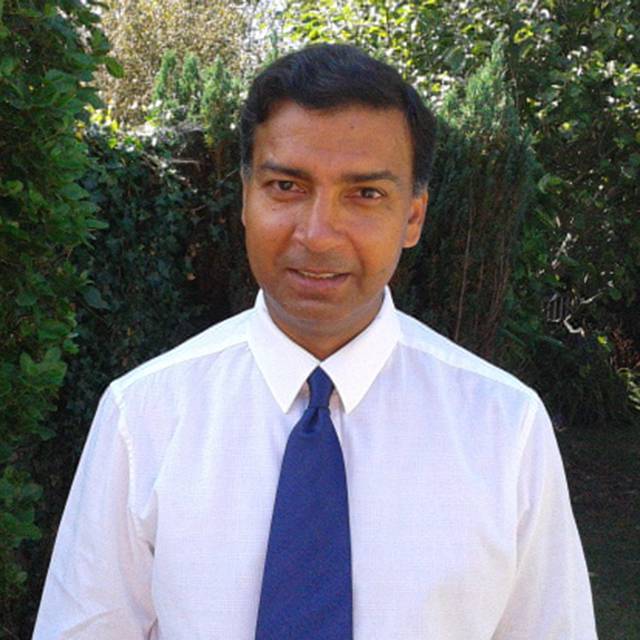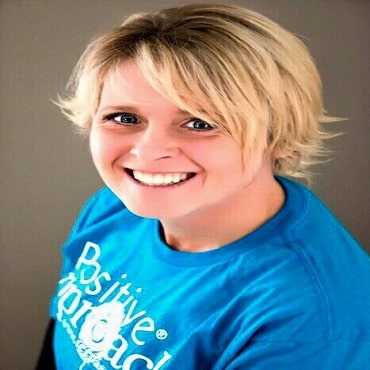
Dementia 2020

Theme: Future Enhancement In the field of Dementia And Dementia Care
Dementia and Dementia Care Webinar 2020 will be organized on July 20, 2020 in Toronto, Canada. Dementia 2020 aims to gather eminent scientists, research scholars, notable neurologist, and educationists and professionals to express their views on the latest technologies, trends, and concerns in Dementia. Dementia 2020 focuses on addressing the constant effort being made by scientist and scholars to improve the existing and inventing novel technologies for future. It provides a platform for organizations, companies, associations, societies, institutions, statutory bodies and other authorities and individuals interested in presenting their thoughts on Dementia procedures and services.
Session 1: Dementia
Dementia is type of disorder in which a person loses his ability to remember things and reduces the thinking capability of a person. This disease is commonly found in old ages people. Although dementia mainly affects older people, it is not a normal part of ageing. Dementia has different types but the most common is Alzheimer's disease which accounts for 60 to 80 percentages of cases. Dementia is one of the major causes of disability and dependency among older people worldwide. Dementia has a physical, psychological, social, and economic impact, not only on people with dementia, but also on their career, families and society at large.
Dementia Conference | Mental Health Conferences | Psychology Conference
Related Conferences
International Conference on Dementia Treatment, Feb 06, 2020, Phuket, Thailand; International Conference on Dementia and Memory Problems, Mar 19 2020, Prague, Czechia; International Conference on Trial Making Test and Dementia, Mar 19 2020, Prague, Czechia.
Session 2: Vascular Dementia
Vascular dementia is a general disorder caused by brain damage due to impaired flow of blood. While suffering from this people face problems during reasoning, planning, judgement and other memory thought process related problems. Vascular dementia is the second most common type of dementia (after Alzheimer's disease), affecting around 150,000 people in the UK.
Vascular Dementia Conference | Vascular Dementia Congress | Vascular Dementia Events | Vascular Dementia Meetings |
Related Conferences
International Conference on Obesity and Dementia, Mar 05 2020, Rome, Italy; International Conference on Dementia Treatment, Oct 24 2020 Bali, Indonesia; International Conference on Dementia and Alzheimer's Disease, Oct 22 2020, Istanbul.
Session 3: Neurodegenerative Diseases
Neurodegenerative diseases occur when nerve cells in the brain or peripheral nervous system lose function over time and ultimately die. It affects millions of people worldwide. The risk of being affected by a neurodegenerative disease increases dramatically with age. As population is increasing day by day, it means more people may be infected by neurodegenerative disease in coming days. And this will create a urgent need in improving our understanding towards neurodegenerative disease and develop new approaches for treatment and prevention.
Vascular Dementia Conference | Vascular Dementia Congress | Vascular Dementia Events | Vascular Dementia Meetings
Related Conferences
International Conference on History of Neurology, Apr 29 2020, Jerusalem, Israel; International Conference on Veterinary Neurology and Applications, Apr 23 2020,Tokyo, Japan; International Conference on Cognitive Disorders Neurology, Jun 11 2020, Barcelona, Spain.
The most common thing to treat a dementia patient is to take proper care and support. Dementia can be treated if it is detected at early stages. Some of the common medicine which can stop the progression of dementia in a person’s body are Donepezil (Aricept), Rivastigmine (Exelon) and Galantamine (Razadyne) — work by boosting levels of a chemical messenger involved in memory and judgment.
Mental Health Conferences | Brain Disorders Conference | Clinical Dementia Conference | Neurology Conference
Related Conferences
Mental and Behavioural Health, April 23-24, 2020, Boston, USA, International Conference on Memory Loss and Dementia, Jul 23 2020,Rome, Italy; International Conference on Memory Loss and Dementia, Aug 23 2020, Rome, Italy.
Session 5: Biomarkers for Dementia
Biomarkers are measures of what is happening inside the living body, shown by the results of laboratory and imaging tests. Biomarkers can help doctors and scientists diagnose diseases and health conditions, find health risks in a person, monitor responses to treatment, and see how a person's disease or health condition changes over time. In Alzheimer's disease and related dementias, the most widely used biomarkers measure changes in the size and function of the brain and its parts, as well as levels of certain proteins seen on brain scans and in cerebrospinal fluid and blood.
Dementia Conference | Stress Conference | Anxiety and Depression Conference | Mood disorder conference | Conference on depression
Related Conferences
International Conference on Anxiety Disorders, Diagnosis and Treatment, March 23, 2020, International Conference on Clinical Depression Treatment, April 27, 2020, International Conference on Antidepressant Agents, Major Depressive Disorder and Anxiety Disorders, May 04, 2020, Rome, Italy.
Session 6: Dementia Nursing
Activities with patients with dementia are structured to progress from the simple to the complex and are intended to be interactive for short bursts of time. Although clinicians often facilitate the interaction, a family member can do it just as easily. Volunteers and nursing students are a great resource for engaging patients with dementia in activities. Families also have extended periods of downtime in hospitals, where often any type of education or reading that they can engage in to pass the time is greatly appreciated. Teaching families these methods not only helps clinical staff manage the patient's care throughout a stay, but also helps the family increase their own skills in caring for a loved One.
Vascular Dementia Conference | Vascular Dementia Congress | Vascular Dementia Events | Vascular Dementia Meetings
Related Conferences
30th International Conference on Neurology and Cognitive Neuroscience, February 24-25, 2020 London, UK; European Meeting on Dementia and Alzheimer Rehabilitation, April 13-14, 2020 Lisbon, Portugal; 12th International Conference on Vascular Dementia, June 22-23, 2020, Prague, Czech Republic
Session 7: Alzheimer’s Clinical Trials and Studies
Clinical trials are research studies conducted in people to determine whether treatments are safe and effective. Without clinical research and the help of human volunteers, there can be no better treatments, no prevention and no cure for Alzheimer’s disease. Treatments aimed at reducing symptoms. During this type of trial, new drugs and variations of existing drugs that aim to reduce the symptoms of Alzheimer's disease are tested. Studies of existing drugs explore whether changing the dose, taking the medication on a different schedule (more or less often), or combining it with other medications might further reduce or delay symptoms. Many clinical studies focus on finding better ways to accurately diagnose Alzheimer's disease, particularly in the early stages. These studies will hopefully lead to a trusted and easy-to-apply method that enables physicians to diagnose persons at risk for the disease — even before symptoms appear — and begin treatment (once such Alzheimer's treatments exist) in time to prevent the development of dementia. Diagnostic studies are vital to the advancement of Alzheimer's research because they identify which individuals to treat and provide doctors with a way to track whether a treatment is working.
Dementia Conference | Psychology Congress | Mental Health Conferences | Neurology Congress | Psychiatric Disorder conference
Related Conferences
16th International conference on Dementia and Alzheimer Disease, February 10-11, 2020 Sydney, Australia; 30th International Conference on Neurology and Cognitive Neuroscience, February 24-25, 2020 London, UK; European Meeting on Dementia and Alzheimer Rehabilitation, April 13-14, 2020 Lisbon, Portugal.
Session 8: Amyloid Protein in Dementia
Beta-amyloid is a small piece of a larger protein called amyloid precursor protein (APP). Although scientists have not yet determined APP’s normal function, they know a great deal about how it appears to work. In its complete form, APP extends from the inside of brain cells to the outside by passing through the fatty membrane around the cell. When APP is “activated” to do its normal job, it is cut by other proteins into separate, smaller sections that stay inside and outside cells. There are several different ways APP can be cut; under some circumstances, one of the pieces produced is beta-amyloid. Beta-amyloid is chemically “stickier” than other fragments produced when APP is cut. It accumulates in stages into microscopic amyloid plaques that are considered a hallmark of a brain affected by Alzheimer’s. The pieces first form small clusters called oligomers, then chains of clusters called fibrils, then “mats” of fibrils called beta-sheets. The final stage is plaques, which contain clumps of beta-sheets and other substances.
Mental Health Conferences | Brain Disorders Conference | Clinical Psychology Conference | Dementia Conference | Dementia Congress
Related Conferences
International Conference on Dementia and Caregiving , May 28 2020, Osaka, Japan; International Conference on Clinical Depression and Psychiatry, July 27, 2020, Zurich, Switzerland; International Conference on Dementia Treatment, Oct 22 2020, Athens, Greece.
Session 9: Alzheimer’s disease Imaging
The role of neuroimaging in Alzheimer’s disease nowadays extends beyond its traditional role of excluding neurosurgical lesions. Radiological findings may support the diagnosis of specific neurodegenerative disorders and sometimes radiological findings are necessary to confirm the diagnosis. It is a challenge for neuroimaging to contribute to the early diagnosis of neurodegenerative diseases such as Alzheimer's disease. Early diagnosis includes recognition of pre-dementia conditions, such as mild cognitive impairment (MCI). In addition, early diagnosis allows early treatment using currently available therapies or new therapies in the future. Neuroimaging may also be used to assess disease progression and is adopted in current trials investigating MCI and AD.
Dementia Conference |Dementia care |Dementia Nursing| Dementia Nursing| Neuroscience Conferences |Neurology Conferences
Related Conferences
International Conference on Psychiatry and Treatments For Mental Illness, February 13, 2020, Dubai, United Arab Emirates; 28th European Congress of Psychiatry, March 28-31, 2020; Mental and Behavioural Health, April 23, 2020, Boston, USA; Behavioural and Mental Health, March 05-06, 2020, Rome, Italy;
Session 10: Recent Studies and Case Reports
With recent advancement in amyloid imaging, diagnostic application of this new modality has become a great interest among researchers. We report here a case of a 37-year-old male patient whose initial complaints comprised of gradual cognitive decline, apraxia, disorientation and sleep disturbances. 18F-Florbetaben amyloid imaging of the patient showed diffuse amyloid retention with prominent striatal uptake. This finding supports the clinical utility of amyloid imaging in diagnostic process of early-onset AD. Moreover, striatal dominant uptake pattern demonstrated in this patient include some meaningful clinical implications that warrant special attention among clinicians. Alzheimer’s disease is a progressive brain disorder that slowly destroys memory and thinking skills, and eventually the ability of brain to do the day to day tasks and is irreversible. Experts say that this is a type of dementia that causes problems with memory, thinking and behaviour, and suggest that more than 5 million people are suffering.
Dementia Nursing| Dementia Congress |Brain and Mental Disorder | Dementia congress |Neuroscience Conference | Alzheimer’s Disease Conference
Related Conferences
16th International conference on Dementia and Alzheimer Disease, February 10-11, 2020, Sydney, Australia; 30th International Conference on Neurology and Cognitive Neuroscience, February 24-25, 2020, London, UK; European Meeting on Dementia and Alzheimer Rehabilitation, April 13-14, 2020, Lisbon, Portugal.
Meetings International offers several awards to recognize outstanding scholarly contributions in the field of Dementia and related field. These awards have different committees, nominating procedures and submission deadlines. They recognize Best Organising Committee Member Award, Best Key Note Speaker Award, Best Speaker Award, Best Young Research Scientist Award and Best Poster Award.
Best Organising Committee Member Award: Meetings International will honour the individual who has demonstrated exemplary support and guidance throughout the conference.

Best Key Note Speaker Award: Meetings International will honour the Keynote Speakers who have made significant contributions in the field of Dementia representing the theme of the conference.

Best Speaker Award: Meetings International perceives the individuals who have made significant research in the related field of the conference. This honour explicitly centers on the uniqueness and creativity that expands member interests.

Best Young Scientist Award: This award recognizes individuals in the early stages of their careers who have made outstanding research, teaching, and/or service contributions to the field of Dementia.

Best Poster Award: This award recognizes individuals from poster presenters who display their outstanding research and findings for an innovative future.

The awards given for Dementia 2020 conference recognises the wide range of responsibilities and scientific dedication in the field of Dementia, Neurodegenerative diseases, case study in dementia and the related fields of dementia.
Introduction
Dementia 2020 conference will provide a chance to all partners working on Dementia diseases to discuss their work. It will bring together eminent speakers, junior and senior researchers, scientists, neurologists, medicine and medical device industry will come to discuss about their theories and reports. The conference will have sessions by world-class specialists in the field of Dementia, neurology and nursing. In Dementia 2020 global symposiums, B2B gatherings, workshops, poster presentations will be organized to talk about the particular subjects in the field of Dementia disorder.
Dementia is a terminal illness, with 1 in 3 over 80 years of age being diagnosed. Every 3 seconds around the globe someone is diagnosed with dementia. 1 in 10 become carers for their loved ones and look after them at home. Only 30 % are cared for in Aged Care Facilities and the other 70% are cared for at home by their loved ones.
According to WHO Dementia is defined as a disorder which is progressive in nature and deterioration in memory, thinking, behaviour and the ability to perform daily activities. Alzheimer disease is the most common form of dementia and may contribute to 60–70% of cases. Dementia has a physical, psychological, social, and economic impact, not only on people with dementia, but also on their careers, families, carers and society at large.
Why to organize this conference
The main reason of organising this conference is to spread awareness about a very serious disease Dementia which is most commonly found in old age people. In this conference people with dementia reach background will come together and express their views on dementia disorder and their main motto is to provide useful information to the attendee so that they can further spread their knowledge to other people.
We need to create global awareness of this humanitarian crisis, not only discussing research but also what strategies are needed to protect all our futures. Unpaid carers are saving the world billions of $$$ each year with all their endless sacrifices and we need to protect and support all carers.
Scope
Dementia is a syndrome, usually of a chronic or progressive nature, caused by a variety of brain illnesses that affect memory, thinking, behaviour and ability to perform everyday activities. The number of people living with dementia worldwide is currently estimated at 50 million and will almost triple by 2050. Dementia is overwhelming not only for the people who have it, but also for their caregivers and families. There is a lack of awareness and understanding of dementia in most countries, resulting in stigmatization, barriers to diagnosis and care, and impacting carers, families and societies physically, psychologically and economically. The number of people with dementia is expected to increase to 82 million in 2030 and 152 million in 2050. The high cost of the disease will challenge health systems to deal with the predicted future increase of cases. The costs are estimated at US$ 818 billion per year at present and are set to increase even more quickly than the prevalence. Carers require support from the health, social, financial and legal systems. Early diagnosis improves the quality of life of people with dementia and their families. More research is needed to develop new and more effective treatments and to better understand the causes of dementia. Research that identifies the modifiable risk factors of dementia is still scarce.
Business value of Dementia
SEATTLE, May 23, 2018 (GLOBE NEWSWIRE) -- According to Coherent Market Insights, the global dementia drugs market was valued US$ 13.90 Billion in 2017 and is projected to exhibit a CAGR of 8.4% over the forecast period (2018 – 2026).
Research centres of Dementia in:
America:
- John Edward Porter Neuroscience Research Center, USA
- Doris Neuroscience Centre, USA
- The Scripps Research Institute, USA
- Burke Neurological Institute, USA
- WVU Rockefeller Neuroscience Institute, USA
- Helen Wills Neuroscience Institute, USA
- Neuroscience Institute, USA
- Titch Ms Research Centre of New York, USA
- Palm Beach Neurology and Premiere Research Institute, USA
- Research Neuroscience Institute, USA
- Mid America Neuroscience Institute, USA
Europe:
- European Neuroscience Institute Gottingen, Germany
- Center for Research in Neuroscience in Lyon, France
- The European Institute For Theoretical Neuroscience, France
- Dutch Brain Institute, Netherland
- The Cyprus Institute of Neurology and Genetics, Cyprus
- Centre for Integrative Neuroscience, Germany
- Oxford Centre for Human Brain Activity Barcelona beta Brain Research Centre, Spain
- Institute Interdisciplinary De Neuroscience, France
- Netherlands Institute for Neuroscience, Netherland
- Oxford Centre for Human Brain Activity, UK
Asia:
- National Institute of Mental Health and Neurosciences, India
- National Brain Research Centre, India
- Neurobiology Research Centre, India
- Centre for Neuroscience, India
- Seoul National University, South Korea
- National Taiwan University, Taiwan
- Tsinghua University, China
- Osaka University, Japan
- Shanghai Jiao Tong University, China
- University of Hong Kong, China
Middle East:
- The Cyprus Institute Middle East Research Institute, Iraq
- Sidra Medicine, Qatar
- National research centre, Egypt
- King Faisal Specialist Hospital & Research Centre, Saudi Arabia
- Priory Wellbeing Centre Dubai, UAE
- American Centre for Psychiatry and Neurology, UAE
Research Universities Worldwide in:
America:
- Rutgers Robert Wood Johnson Medical School, USA
- Yale School of Medicine, USA
- Vanderbilt University Medical Center, USA
- Medical College of Wisconsin, USA
- Wayne State University, USA
- Sutter Institute for Medical Research, USA
- University Neuropsychiatric Institute, USA
- Carl T Hayden Medical Research Foundation, USA
- Jasper Summit Research, USA
- Uma’s Psychiatric Research Institute, USA
- Centre for Psychiatry and Behavioural Medicine, USA
Europe:
- University of Oxford, UK
- University College London, Institute of Neurology, UK
- Magdeburg University, Germany
- University of Cambridge, UK
- UCL Queen Square Institute of Neurology, UK
- The University of Edinburgh, UK
- University of Nottingham, UK
- Hedrick University, Germany
- Lubeck University, Germany
Asia Pacific:
- National University of Singapore, Singapore
- Indian Institute of Technology Bombay, India
- Nan yang Technological University, Singapore
- University of Asia Pacific, Bangladesh
- Pacific Medical College & Hospital, India
- The University of Tokyo, Japan
- Shanghai Jiao Tong University, China
- University of Hong Kong, China
- Peking University, China
- National Taiwan University, Taiwan
Hospitals of Dementia in:
America:
- Massachusetts General Hospital, USA
- Sheppard Pratt Hospital, USA
- Cedars-Sinai Medical Centre, USA
- UCSF Medical Centre, USA
- Mayo Clinic, USA
- Denver Springs, USA
- Resnick Neuropsychiatric Hospital at UCLA, USA
- Stewart and Lynda Resnick Neuropsychiatric Hospital, USA
- Oceans Behavioural Hospital Permian Basin, USA
Europe:
- National Hospital for Neurology and Neurosurgery, UK
- Europe Hospitals - St-Michel Site, Belgium
- Xanit Hospital, Spain
- Medipol Mega University Hastiness, Turkey
- University Hospital Heidelberg, Germany
- Hisar Hospital Intercontinental, Turkey
- Sahlgrenska University Hospital, Sweden
- Assistance Public Hospital de Paris, France
- Institute of Psychiatry and Neurology, Poland
- Centre Hospital University Vaudois Lausanne, Switzerland
Asia Pacific:
- Continental Hospitals, India
- Fortis Vasant Kunj, India
- Bumrungrad Hospital, Bangkok
- Sunway Medical Centre, Malaysia
- Gleneagles Intan Medical Centre, Malaysia
- Rambam Medical Centre, Malaysia
- Apollo Spectra Hospital Koramangala, India
- Bangkok Hospital Pattaya, Thailand
- Yangon Mental Health Hospital, Myanmar
- Buddhist Tzu Chi Medical Foundation, Taiwan
Middle East:
- Med clinic City Hospital, United Arab Emirates
- Neuro Spinal Hospital, United Arab Emirates
- German Neuroscience Centre, United Arab Emirates
- Department of Neurology, Israel
- Emirates Hospital, Dubai
- Saudi German Hospital, Saudi Arabia
- Med clinic Parkview Hospital, United Arab Emirates
- LIV Hospital, Turkey
- Maiden clinic, Kuwait
- Maamora Psychiatric Hospital, Egypt
Funding Bodies in Global Health:
- Chinese Academy of Sciences
- National Natural Sciences Foundation of China
- Council for Scientific and Industrial Research
- Japan Science and Technology Agency
- The Volkswagon Stifung Foundation
- Austrian Science Fund
- Vienna Science and Technology Fund
- National Fund for Scientific Research
- Hungary Scientific Research Fund
- Canadian Foundation for Innovation
- The Brain and Behaviour Research Fund
- Neuroscience Research Grants
- Health Research Council of New Zealand
- Neurological Foundation New Zealand
- South African Medical Research Council
Conclusion:
Dementia 2020 will bring together experts like eminent scientists, senior/junior research fellows, professors, students, leading neurologist & psychiatrists, members of different neurology association, medicine and medical technology companies related to Dementia from all over the world to share an interest in the field of Dementia to discuss about the new concepts and research ideas with advancements in the field which is to be applied in near future for the well-being of humans.
References:
https://www.who.int/news-room/fact-sheets/detail/dementia
assistance/hospitals/psychiatric-hospitals.html
https://www.google.com/search?rlz=1C1GCEU_ WgCA&q=neurology+research+centre
2nd International Conference on Dementia & Dementia Care provides a platform for organizations, companies, associations, societies, institutions, statutory bodies and other authorities and individuals interested in presenting their thoughts on Dementia procedures and services. The size and diversity of our advertising options, including banners, sponsored emails, article alerts or newsletters, provide clients with the very best customized marketing opportunities in science and medicine.
The advertising platform we provide you is the best chance of showcasing your products/services, and branding your company. If you are looking for a global exposure for your products and services, this is the right place for you. With over 5 million readers worldwide and nearly 3 million hits a month on our website, we have engaged audience of students, research scholars, scientists, doctors, professors, pharmacists and professionals from companies across the domains.
If you sell dementia medicine, research materials, other products, chemicals, instruments, or any service like dementia care provider, here is your opportunity to advertise in the website that can connect you to leading experts and science specialists across the Globe.
Advertisement banner must be provided in high resolution jpg or jpeg format by the advertising company and must not have copyright infringement. We can also support your events and conferences by providing you with high quality reprints of published articles that can add value to your event.
For any queries regarding advertising opportunities, please contact: dementia@annualmeetings.net
Meetings International is announcing Young Scientist Awards through 2nd International Conference on Dementia and Dementia Care (Dementia 2020) which is scheduled at Montreal, Canada during April 20-21, 2020. This Dementia Conference focuses on “FUTURE ENHANCEMENT IN THE FIELD OF DEMENTIA AND DEMENTIA CARE”.
Dementia 2020 and upcoming conferences will recognise participants who have significantly added value to the scientific community of neurology and neuroscience provide them outstanding Young Scientist Awards. The Young Scientist Award will provide a strong professional development opportunity for young researches by meeting experts to exchange and share their experiences at our international conferences.
Dementia 2020 focuses mainly on eminent scientists, research scholars, notable neurologist, and educationists and professionals is providing a platform for all the budding young researchers, young investigators, post-graduate/Master students, PhD. students and trainees to showcase their research and innovation.
Eligibility:
Young Scientists, faculty members, post-doctoral fellows, PhD scholars and bright Final Year MSc and M.Phil. Candidates. Persons from Scientific Industry can also participate.
Benefits: The Young Scientist Feature is a platform to promote young researchers in their respective area by giving them a chance to present their achievements and future perspectives.
- Acknowledgement as YRF Awardee
- Promotion on the conference website, Young Researcher Awards and certificates
- Link on the conference website
- Recognition on Meetings Int. Award Page
- Chances to coordinate with partners around the world
- Research work can be published in the relevant journal without any publication fee
Criteria:
- All presented abstracts will automatically be considered for the Award.
- All the presentation will be evaluated in the conference venue
- All the awards will be selected by the judges of the award category
- The winners of the Young Scientist Award will receive award certificate.
- The awards will be assessed as far as plan and format, intelligence, argumentation and approach, familiarity with past work, engaging quality, message and primary concerns, parity of content visuals, and by and large impression.
Guidelines:
- All submissions must be in English.
- The topic must fit into scientific sessions of the conference
- Each individual participant is allowed to submit maximum 2 papers
- Abstract must be submitted online as per the given abstract template
- Abstracts must be written in Times New Roman and font size will be 12
- Abstract must contain title, name, affiliation, country, speakers biography, recent photograph, image and reference
Conditions of Acceptance:
To receive the award, the awardee must submit the presentation for which the award is given, for publication at the website, along with author permission. Failure to submit the PPT, and permission within the designated timeframe will result in forfeiture of award.
Award Announcements:
Official announcement of the recipients will occur after the completion of Dementia Conference.
- Dementia
- Vascular Dementia
- Neurodegenerative Diseases
- Treatment and cure
- Biomarkers for Dementia
- Dementia Nursing
- Alzheimers Clinical Trials and Studies
- Amyloid Protein in Dementia
- Alzheimer disease Imaging
- Recent Studies and Case Reports
- International Journal of Mental Health & Psychiatry
- Research and Reviews in Psychology

